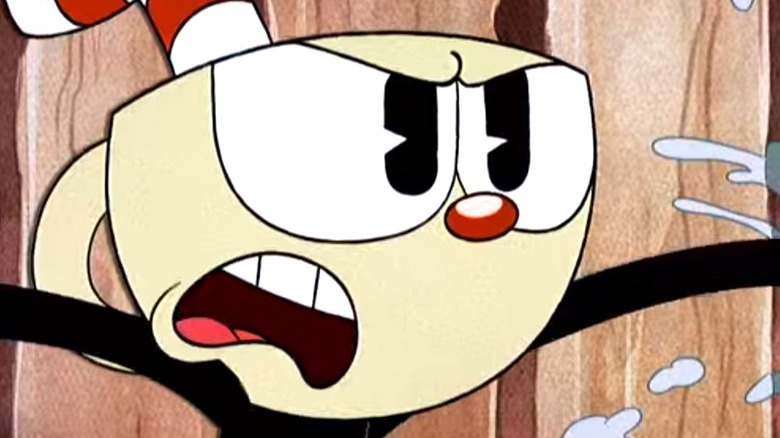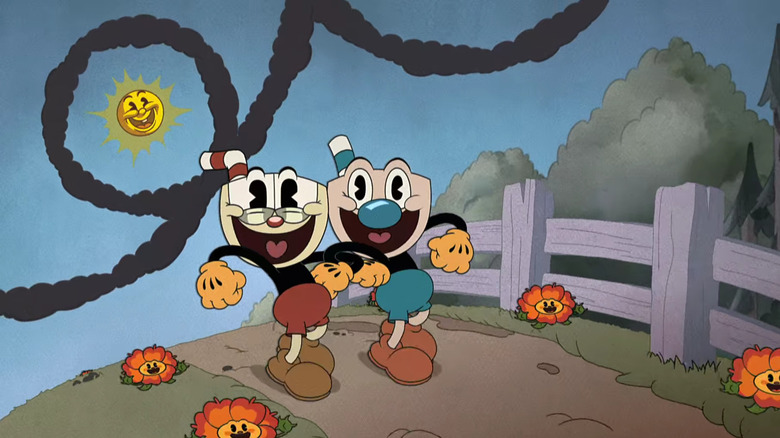The Unique Challenge The Cuphead Show Creative Team Faced When Developing The Series
"Cuphead" has been one of the most successful indie games of the last decade. While the base game was a huge hit, the DLC add-on for the game, "Cuphead: The Delicious Last Course," also blew fans away to the point that it sold over 1 million copies in only two weeks (via Nintendo Life).
Inspired by the Max Fleischer cartoons from the golden age of animation, "Cuphead" stands out by emulating the classic look of the madcap cartoons of the 1930s. Before film and television became regulated, cartoonists and animators were able to do almost anything in their shows, which led to chaotic, inventive, and occasionally disturbing content (via Comic Book Historians).
With such a distinct visual style, the creators of Netflix's adaptation, "The Cuphead Show!" had their work cut out for them in terms of bringing the franchise to a new medium. However, it would seem that this wasn't the only challenge the team faced when creating the series.
They had to create most of the personality for the characters
ComicBook.com sat down with "The Cuphead Show!" creator Dave Wasson and art director Andrea Fernandez to talk about the hurdles they faced when working on the series' first season. "Well, the biggest challenge and the biggest joy of doing it was we had this amazing visual smorgasbord of characters to choose from," explained Wasson. "But none of them had real personalities yet."
It's easy to see where Wasson is coming from here, as the zany plot of "Cuphead" is basically just an excuse for a series of increasingly absurd and ridiculous boss battles. With that in mind, the game provides very little story outside of "go here and fight this person."
"So I feel like I always say the [Cuphead creators] dropped these breadcrumbs for us," Wasson went on. "But we got to create characters, and give them real personalities, and cast the voices. That was super fun to do." Since the game contains no voice-acting at all, aside from a ringside announcer, and dialogue only comes up occasionally, the show is sort of an open canvas for the team to work with.
Fernandez weighed in as well. "It was a lot more about comedy than it was lore," she elaborated. "And I think that's a little different than other projects that come from that video game space." There's certainly something to that, as when adapting the essence of the property, creators would have to focus more on the energy of the property than the story.

